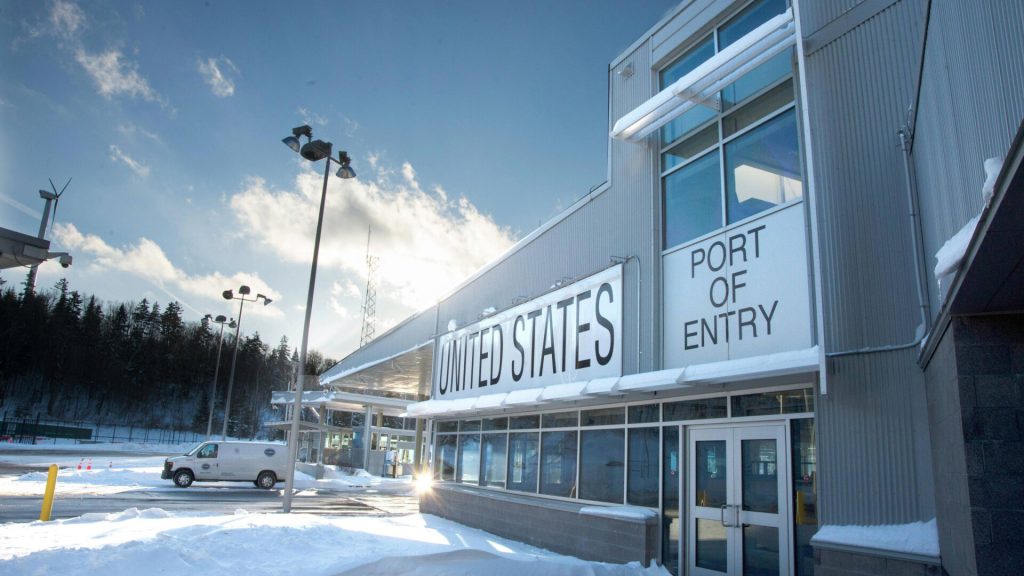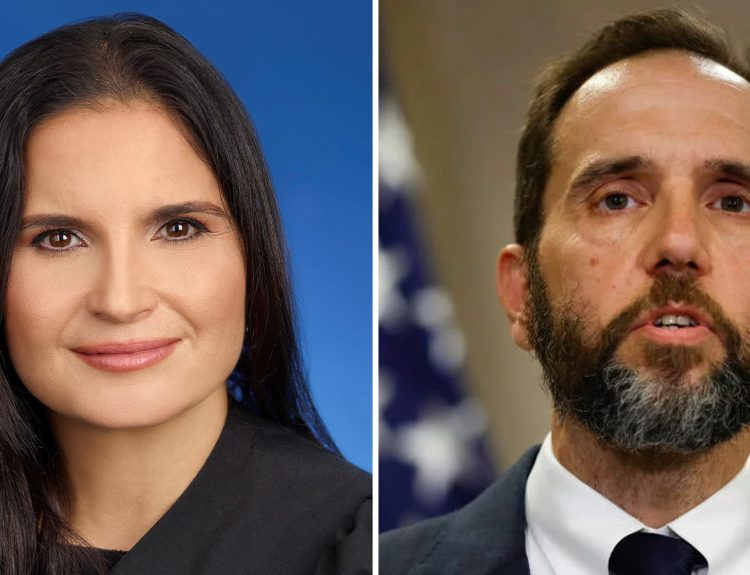On Wednesday evening, Iowa Governor Kim Reynolds signed a new legislative measure that gives local police the authority to arrest illegal immigrants in the state who were previously denied admission or deported.
Senate File 2340
Senate File 2340 criminalizes the entry or re-entry of illegal immigrants into Iowa if they have been previously denied admission or deported from the U.S.

This legislation mirrors another Texas law which is being challenged legally by the Biden Administration.
Reynolds Cites Failures of The Biden Administration
The Republican Governor released a statement announcing the new measure. Reynolds said, “The Biden Administration has failed to enforce our nation’s immigration laws, putting the protection and safety of Iowans at risk.”

Reynolds added, “Those who come into our country illegally have broken the law, yet Biden refuses to deport them. This bill gives Iowa law enforcement the power to do what he is unwilling to do: enforce immigration laws already on the books.”
White House Spokesperson Defends The Biden Administration
A White House spokesperson, Angelo Fernández Hernández, came out in defense of the Biden administration’s approach to the border issue. Hernández stated that federal officials have “removed or returned” hundreds of thousands of individuals from the U.S. this year.

Hernández also criticized Republican congress members for their failure to pass a border security bill.
The Law Comes Into Effect On July 1
Both chambers of the state legislature approved the new law last month. The law is scheduled to come into effect from July 1 if it doesn’t get blocked by a court.

The new law classifies it an aggravated misdemeanor, carrying a penalty of up to two years of imprisonment, for individuals in the state who have outstanding deportation orders, previous history of deportations, or past denials of entry into the country.
Fear Among Immigrants
Executive director of the Iowa Migrant Movement for Justice, Erica Johnson, there is a great deal of fear among immigrants with regards to this new law. She said the group was thinking of challenging the legislation in court.

Johnson stated, “This law ignores the fact of federal preemption, and it’s purely a political stunt in an election year that’s meant to drive fear and just perpetuate hateful campaign rhetoric.”
The Bill Does Not Stand For “Iowa Nice”
In an online statement, Iowa Migrant Movement for Justice, stated, “We know that we all belong here, Iowa is home, and we will stand together as workers, families and allies to defend each other.”

According to the group, “Welcoming immigrants and refugees is the definition of what ‘Iowa Nice’ should be. Governor Reynolds is failing newly arrived and long-time Iowans.”
Potential Issues With The New Law
Johnson clarified that the new law does not authorize local police to arrest any and all undocumented immigrants. It specifically targets those immigrants who were previously deported or denied entry.

Johnson emphasized that this could encompass individuals who currently have legal status but are seeking asylum or are protected under the Deferred Action for Childhood Arrivals (DACA) program.
Those Who Came To Iowa Decades Ago Can Also Be Targeted
Johnson expressed concerns over the bill’s indefinite timeframe, noting that this could imply individuals who re-entered Iowa several decades ago can also potentially be arrested and charged under the new law.

Johnson believes Iowa should be a welcoming place for refugees and immigrants. She believes this law is not in the best interest of Iowans.
Holt Agreed That There Are Many Unanswered Questions
When the Iowa Legislature passed the bill last month, Steven Holt, Republican Representative of Denison, accepted the fact that there were many unanswered questions, including how the state would carry out deportations to Mexico.

At the same time, Holt argued that the federal government had neglected its responsibility of adequately controlling the U.S.-Mexico border.
ACLU Of Iowa Opposed The Bill
Holt also argued, “I believe that in order to protect our communities and our state, we must push the envelope. And that is what this legislation does.”

Mark Stringer, ACLU of Iowa’s Executive Director criticized the bill. Stringer saying it was “one of the most extreme, discriminatory, and unconstitutional anti-immigrant bills in the country.”
Stereotyping and Racial Profiling
Further criticizing the bill, Stringer said, “The Iowa law enforcement and state judges tasked with authority to carry out this outrageous legislation are not trained in immigration law and have no proper authority to enforce it.”

Stringer added, “This legislation encourages and facilitates racial profiling and stereotyping. It undermines—not promotes—public safety and the rule of law.”
Potential Abuse or Misuse Of The Law
Stringer argued that the new law authorizes Iowa judges to order someone’s deportation or imprisonment long before they can seek humanitarian protection to which they are entitled.

Stringer warned that this measure has the potential to cause havoc among Iowa families and communities, posing a threat to both citizens and noncitizens in the state.
Arrest Can’t Be Carried Out At Certain Places
The law prohibits police from arresting suspected migrants at medical facilities, schools, and places of worship.

According to the text of the law, arrested illegal immigrants may be allowed by a judge to leave the country, thereby, avoiding facing charges.
The Police Department Doesn’t Have The Resources to Enforce The Law
Back in March, Des Moines Police Chief Dana Wingert, informed The Associated Press that immigration status is not taken as a critical factor when the department’s efforts are focused on ensuring community safety.

Wingert also stated that the police force lacks the funding, resources, and staffing to assume responsibilities that are typically the domain of the federal government.






